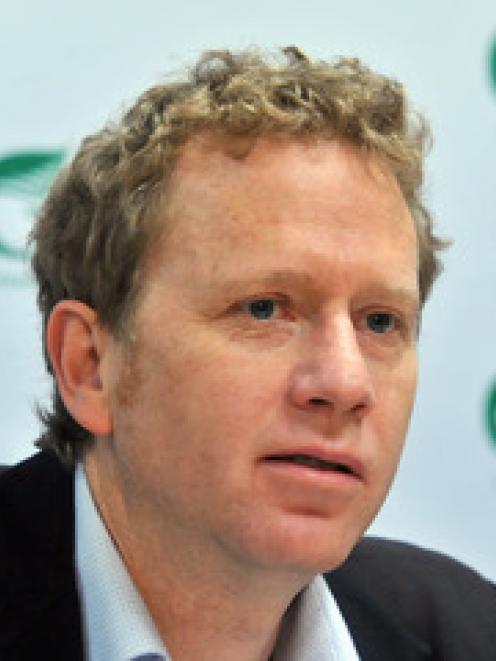
The party has completely lost hope in the "failed" Emissions Trading Scheme and now wants to replace it with a carbon tax in order to ramp up New Zealand's efforts to combat climate change.
In a speech at the Green party AGM this afternoon, co-leader Russel Norman said climate change was the "biggest issue of our time", if not "the biggest issue of all time".
"Climate change is not war. It's not a plague. It's not a global financial crisis. There is nothing to compare it to in human history," he told delegates.
"We have no points of reference. Because of this, understanding what we're seeing and taking action is a challenge, both politically and psychologically."
He said Government's failure to grasp the problem had left New Zealand exposed.
If elected, Greens want to charge all sectors except agriculture $25 per tonne on C02 equivalent emissions.
Farmers would be charged $12.50 per tonne and forestry, which helps absorb carbon pollution, would be credited at a rate of $12.50 per tonne.
Sheep and lamb farming would initially be exempt from a carbon tax.
All of the revenue raised from the carbon charge would be returned to families and businesses.
All individual income under $2000 would be tax-free and companies would get a 1 per cent tax cut.
The carbon tax would be expected to raise the cost of petrol, food and electricity bills.
Once the increased costs of companies passing on the tax were taken into account, Greens estimated that households would be $319 better off every year.
The cost of a new independent Climate Commission, which would advise government on carbon pricing, would be funded by the savings from cutting the ETS.
At present, companies buy carbon credits through the ETS to cover the costs of their pollution.
Agriculture is excluded from the scheme and heavy polluters get up to 90 per cent of their credits free of charge.
Greens felt the ETS was now useless because farmers created roughly half of all carbon emissions and cheap foreign credits had undermined the market. The price of New Zealand carbon units had fallen from $25 to $5, which gave less incentive for companies to switch to low-carbon technology.
Dr Norman said climate change was already costing New Zealanders, pointing to $174 million in insurance pay-outs for weather-related events and $1.6 billion in damage from drought in the first five months of last year.
The carbon tax would cost New Zealand industry around $1.1 billion a year.
The revenue would be divided into tax breaks for companies ($250 million), income tax cuts ($641 million), and credits for forestry ($186 million).
Analysis by economic consultancy BERL said increased costs of fuel and electricity were likely to be passed on to consumers "with little impact on the bottom lines of these industries".
Consumers could expect to pay more in many areas under the proposed scheme.
Offsetting the carbon emissions of a return trip between Auckland and London would cost an airline around $97.50 per passenger - a cost that was likely to be passed on to the consumer.
Dr Norman also noted that 30 jobs had been lost at Fox Glacier because ice retreat caused by increased warming meant it could only be reached by helicopter, not by walking.












